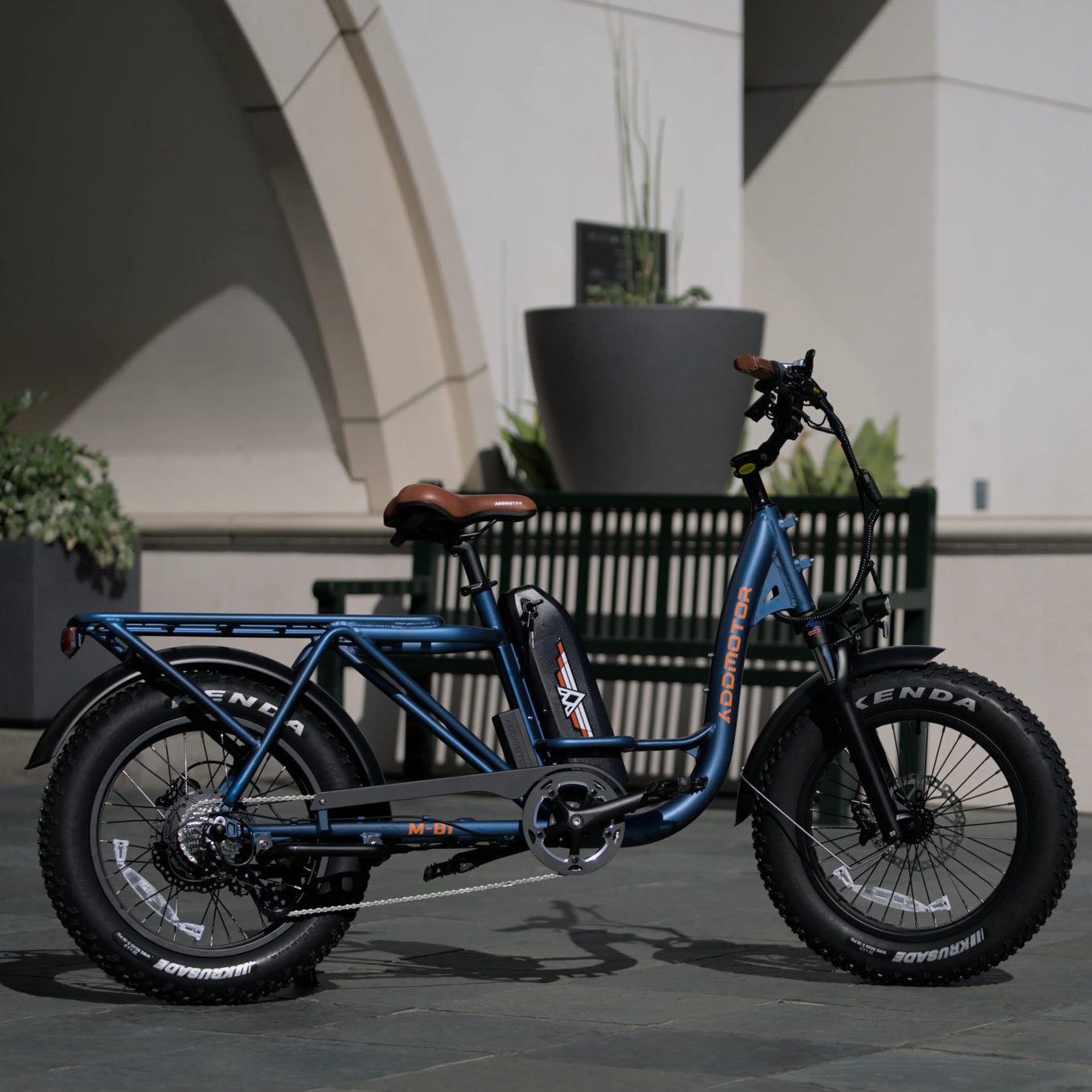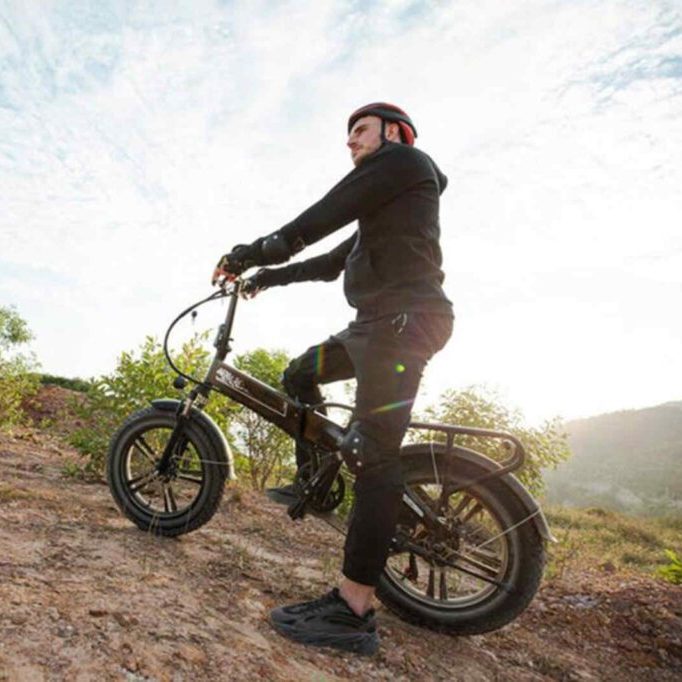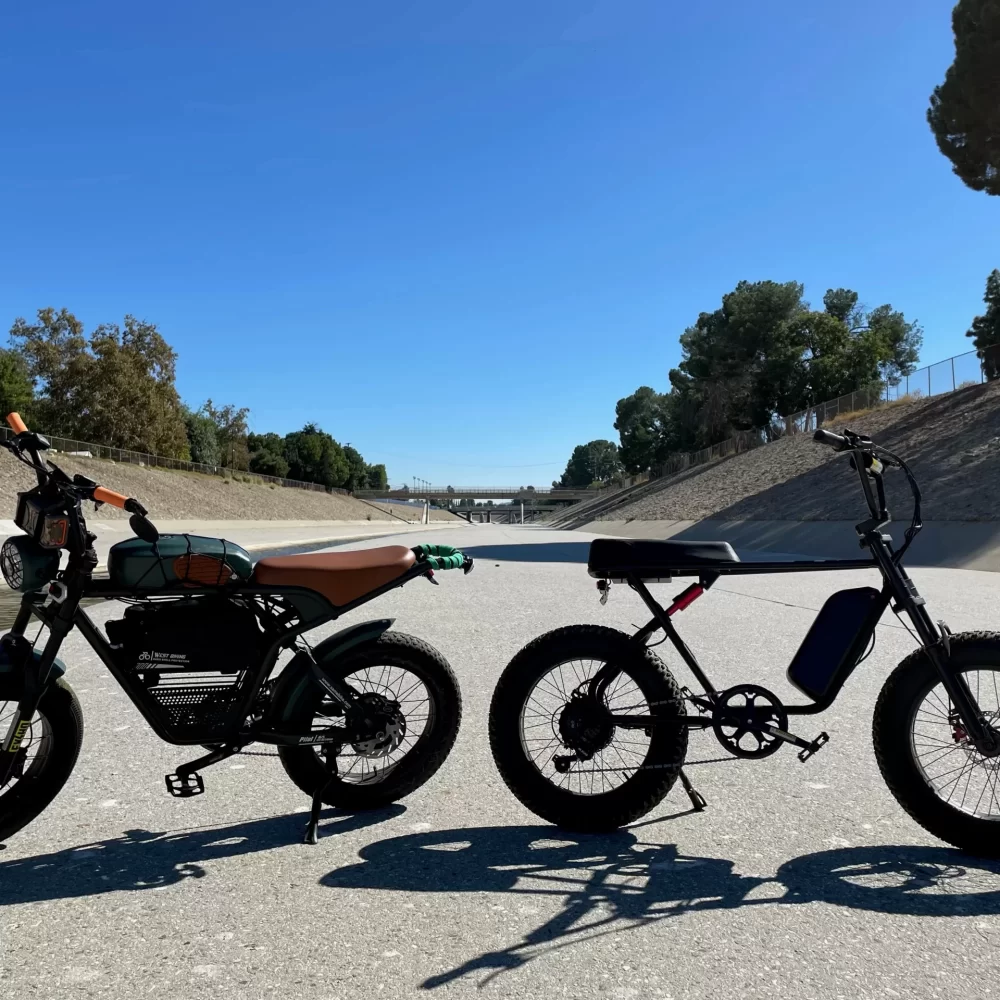Introduction: electric bike vs motorcycle
Choosing the right mode of private transportation can be a dilemma. In this guide, we compare electric bike vs motorcycle in various aspects including cost, maintenance, and running costs. We focus on helping you decide which option might be more suitable for your needs and budget. Whether you’re a commuter, a delivery rider, or a casual traveler, understanding these differences is crucial.
In the following sections, we will delve deep into the initial purchase costs, ongoing maintenance expenses, and the running costs of each. We will also explore the specific advantages each vehicle offers based on different user scenarios. Stay tuned as we break down these two popular transportation options to help you make an informed decision.

Defining E-Bikes and Motorcycles
Before we dive into costs, it’s essential to understand what E-Bikes and motorcycles are.
What is an E-Bike?
An E-Bike, or electric bike, supports your pedaling with an electric motor. You still pedal, but with less effort. It frees you from sweating during your commute or leisure rides. E-Bikes are great for city travel and mild adventures.
What is a Motorcycle?
A motorcycle is a motor-powered vehicle designed for speed and long-distance travel. It does not involve pedaling. Motorcycles are ideal for faster, thrilling rides and extensive road trips. They are more involved in terms of operation and require more maintenance compared to E-Bikes.
Initial Purchase Costs
Understanding the initial purchase costs for both E-Bikes and motorcycles is vital.
E-Bike Costs
E-Bikes come at varying prices based on model and features. Typically, a solid E-Bike costs around $1,200. Some costs include:
- Machine price: This varies, but expect to start from $1,200 for a quality E-Bike.
- Registration fees: E-Bikes may need registration in some places, adding minor costs.
- Safety gear: A good helmet can cost about $50.
In total, getting started with an E-Bike can cost approximately $1,261. Financing options are available at many retailers, making it easier to purchase.
Motorcycle Costs
Motorcycles generally cost more upfront than E-Bikes. Here’s a rough breakdown:
- Base price: For a basic motorcycle, prices start from $6,000.
- COE: The Certificate of Entitlement can add $7,500 or more.
- Insurance: Mandatory insurance may cost around $1,200 yearly.
- License and fees: Getting a motorcycle license and related fees might total $1,200.
Adding these up, the initial cost for a motorcycle could be over $16,000. Remember, there’s a high demand for motorcycles, and getting a license may take 6-12 months. This initial cost barrier makes E-Bikes a more attractive option for many.
Ongoing Maintenance Costs
Proper maintenance ensures longevity and efficiency in any vehicle. Here, we examine the maintenance needs for E-Bikes and motorcycles.
E-Bike Maintenance
E-Bikes are relatively low-maintenance compared to motorcycles. Generally, most maintenance tasks E-Bike owners face are simple and can often be done at home. Key areas of focus include:
- Battery Care: The most critical component. Charge regularly and store in a cool, dry place.
- Tire Pressure and Treads: Check monthly. Proper inflation extends tire life and ensures safety.
- Chain Lubrication: Lubricate the chain every few months to ensure smooth riding.
- Brake Checks: Inspect brake pads and discs for wear regularly.
Annually, maintenance might only set you back about $50 to $100 if no major replacements are needed.
Motorcycle Maintenance
Motorcycles demand more frequent and often costly maintenance. The complexity of their engines and the need for professional service can add up. Key maintenance areas include:
- Engine Maintenance: Regular oil changes and tune-ups are crucial.
- Tire Maintenance: More frequent checks are required due to faster wear.
- Brake System: Regular servicing is needed to ensure safety.
- Chain and Gears: These require frequent lubrication and adjustments.
Expect to spend upwards of $300 annually on basic motorcycle maintenance, excluding any major repairs or part replacements.
 Running Costs Comparison
Running Costs Comparison
When comparing e-bikes and motorcycles, running costs are a major factor to consider. Let’s break down what you can expect to spend on each after the initial purchase.
E-Bike Running Costs
E-bikes boast low running costs due to their electric nature. Key expenses include:
- Electricity: Minimal; charging an e-bike’s battery is very cheap.
- Maintenance: Occasional check-ups and wear-and-tear parts replacement.
- Repairs: Usually low, unless a major component like the battery fails.
Overall, running an e-bike can be very affordable. Most users spend around $20-220 annually.
Motorcycle Running Costs
Motorcycles incur higher running costs, mainly due to fuel and maintenance.
- Fuel: Significant expense; prices vary, but motorcycles are not as efficient as e-bikes.
- Maintenance: Includes oil, filters, and more frequent service checks.
- Repairs: Can be costly, especially with engine or transmission issues.
Annually, expect to spend above $1,000 on running a motorcycle, not including potential repairs.
Running costs clearly show e-bikes as a more economical option over time compared to motorcycles. They not only help save on routine expenses but also contribute to a lower carbon footprint.
Pros and Cons Based on Use Cases
E-Bike Advantages
- Cost-Effective: E-bikes have low running costs and are cheap to charge.
- Eco-Friendly: They produce no emissions, making them kinder to the environment.
- Maintenance: E-bike maintenance is straightforward and can often be done at home.
- Accessibility: No need for a special license makes them accessible to many users.
- Health Benefits: Pedaling an e-bike can provide good exercise.
- Urban Commuting: They are well-suited for city traffic and finding parking is easier.
- Silent Operation: This makes for a peaceful ride with no noise pollution.
Motorcycle Advantages
- Speed and Range: Motorcycles provide fast speeds and are good for long distances.
- Power: They offer higher power, which is useful for highway travel and hauling cargo.
- Adventure-Ready: Motorcycles are suitable for off-road and adventurous journeys.
- Cultural Appeal: Being part of a motorcycle community has its own charm.
- Riding Experience: Motorcycles offer a thrilling, sensory ride.
- Cargo Space: They often come with storage options for longer trips.
- Weather Resilient: Motorcycles can be ridden in varied weather conditions, unlike e-bikes.
Both e-bikes and motorcycles have their own set of advantages. The right choice depends on specific needs, preferences, and use cases. Consider your daily route, the distance you travel, and what you enjoy about riding to make an informed decision.
Safety Considerations
Protective Gear and Skills
Both electric bike and motorcycle riders must focus on safety. However, the level of protective gear required and the skill levels differ greatly.
Electric Bikes: While riding an e-bike may not typically necessitate extensive protective gear, wearing a helmet is critical. E-bike riders often feel the need for less gear as the speeds they travel at can be lower than those of motorcycles. However, it’s advisable to wear appropriate gear to minimize injuries in case of accidents.
Motorcycles: Riding a motorcycle demands a higher degree of protective gear, including helmets, gloves, jackets, pants, and boots. Riders must also be knowledgeable about advanced riding techniques and safety regulations, as the risks involved are generally higher due to greater speeds and road conditions.
Road Visibility
Motorcycles are larger and more noticeable on the road compared to electric bikes. However, e-bikes are often quieter and less noticeable, which could pose a risk if drivers are unaware of their presence. Riders of both vehicles should enhance their visibility through reflectors, lights, and brightly colored clothing.
 Conclusion: electric bike vs motorcycle
Conclusion: electric bike vs motorcycle
Choosing between electric bike vs motorcycle depends on your needs and lifestyle. If you’re looking for an eco-friendly, cost-effective, and easy maintenance option for short urban trips, E-Bikes are ideal. They are cheaper in terms of both initial costs and running expenses. Moreover, their maintenance is simpler and they are gentle on the environment.
On the other hand, motorcycles offer speed, power, and range suitable for long-distance travels and fast commutes. They are perfect for those who enjoy thrilling rides and don’t mind higher running costs and maintenance. Motorcycles also let you experience more challenging terrains and adverse weather.
In essence, if your priority is low-cost travel and reducing environmental impacts, E-Bikes are the way to go. For thrill-seekers and long-distance riders, motorcycles are the better choice. Consider your traveling needs, environmental preferences, and budget to make the right decision.
